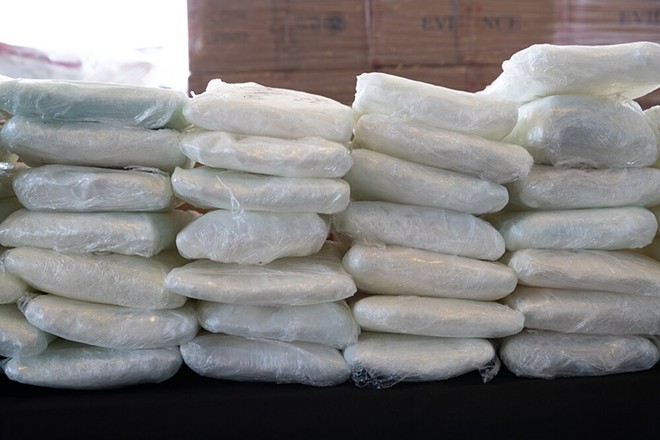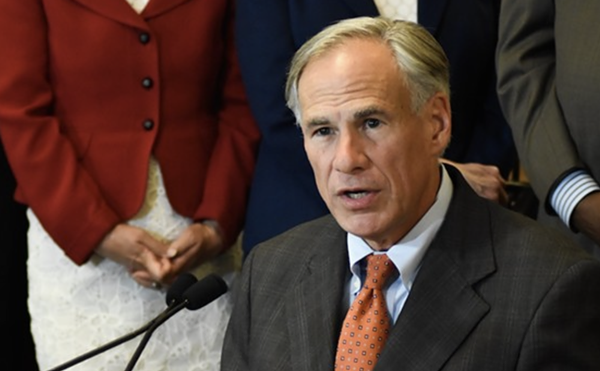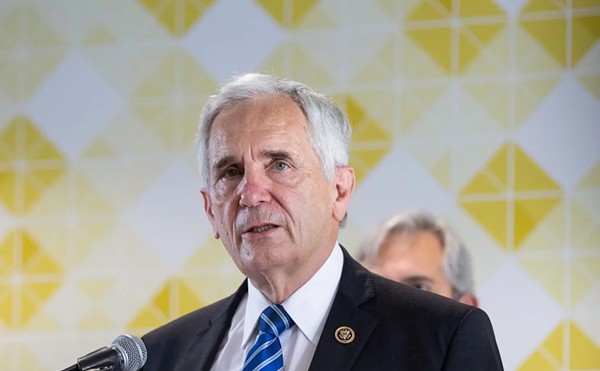
District 5 Councilwoman Teri Castillo this summer filed a council consideration request to designate opioid-related overdoses a public health crisis and focus on efforts to help reduce fatalities among those already grappling with addiction issues.
The harm reduction component of the plan includes boosting community access to Narcan, the nasal spray form of naloxone, a drug that reverses opioid overdoses. Further, the proposal would help create and strengthen programs to aid pregnant individuals and mothers in the grips of opioid addiction.
"The intent is to create a plan to ensure that every dollar we received from the settlement is used intentionally and that we're using these funds to help alleviate the crisis that we're seeing," Castillo said. "We want to ensure that these funds are being used for the reason why we received them and that we're moving with intention."
In 2021, the Texas Attorney General's office obtained a $4.4 million opioid settlement for San Antonio, which will be paid out over a period of up to 20 years. Bexar County, which separately received a $14.4 million settlement, earlier this year established a framework for how it will spend its funds.
There's an urgency to figure out how to disperse that money as overdose deaths from fentanyl, a powerful synthetic opioid often used to cut other street drugs, continue to rise across the country. A 2022 lab analysis by the DEA found that four in 10 fentanyl-laced counterfeit pills on the street contained a potentially lethal dose of the drug.
Texas reported 1,692 synthetic opioid-related deaths in 2021, nearly double the death toll of the year before, according to state numbers. Meanwhile, Bexar County alone accounted for 246 overdose deaths that year, and its death rate for opioids is 33% higher than the state average.
Life-or-death matter
Experts argue that harm-reduction efforts such as those in Castillo's request are vital since many at high risk for fentanyl exposure.
A 2023 report from the Texas Center for Justice and Equality cautions that the state isn't adequately funding treatment programs for people dealing with substance abuse disorder. Texas' ongoing refusal to accept the federal Medicaid expansion has also left many without the insurance coverage necessary to seek medical help.
"Not only does Texas unnecessarily over-criminalize recreational drug use with devastating consequences, but its approach to dealing with substance abuse disorder — from punishment, to abstinence, to lack of adequate support — is failing Texans and costing lives," the report said. "State and local decision-makers must take crucial steps to implement viable, effective programs and strategies that focus on meeting people's needs."
To be sure, Castillo's efforts to strengthen harm reduction in San Antonio comes as the Republican-controlled Texas Legislature continues to take a tough-on-crime, drug-war driven approach to dealing with the opioid crisis while virtually ignoring the importance of harm reduction. It's an approach that's already proven to be a nationwide failure, according to drug policy experts.
In April, the Texas House voted overwhelmingly to decriminalize fentanyl test strips, which people can use to test street drugs to check whether they contain fentanyl. However, the state Senate failed to take action on the measure, allowing it to die before it reached the desk of Gov. Greg Abbott.
After years of opposition to decriminalizing the strips, Abbott had publicly stated he would support such a bill during the past legislative session. Even so, the governor didn't make decriminalization one of his legislative priorities for the special session he subsequently called to debate school vouchers.
"I think it was a failed opportunity to ensure that we were deploying all tools available to us, and access to fentanyl testing strips is one of the many ways that we can save lives," Castillo said of the failed bill. "I really do believe we missed an opportunity, but there's always a chance for us to revisit that conversation. We know that there was an appetite, but somewhere along the line it fell through."
On the other hand, the Legislature did pass a measure ratcheting up the penalties for producing and selling fentanyl by classifying overdoses from the drug as "poisonings." Theoretically, that allows prosecutors to pursue murder charges against those convicted of giving someone a fatal dose of a fentanyl-laced substance, knowingly or unknowingly.
Drug policy experts blasted that piece of legislation, saying it's likely to scare people away from calling for help when someone they're around someone succumbing to an overdose. Similar laws in other states have led to higher overdose deaths and misguided criminal charges against people who aren't drug dealers but family or friends who happened to be present when someone experienced a fatal OD, they warned.
"No study has ever shown that increasing penalties for drug usage has ever reduced drug usage in people who have a drug addiction," State Rep. Gene Wu, D-Houston, said in a speech opposing to the bill, according to the Texas Tribune. "You've probably already decided how you're going to vote, and that's fine. What I'm here to do today is speak against the continuation of the drug war and the continued incarceration of people for drug addiction instead of providing them the help and care they need to not be addicts."

Bolstering programs, meeting needs
If adopted, Castillo's request would beef up existing local programs that distribute Narcan to at-risk populations. For example, the UT Health San Antonio School of Nursing oversees the Texas Targeted Opioid Response grant, a state-funded program that provides free doses of Narcan.
Castillo's proposal would help smaller nonprofit groups access and distribute the drug as well. Under current state law, organizations and people who want to distribute naloxone must obtain state approval to do so, which requires both training and an administrative process the councilwoman said can be difficult for individuals or grassroots organizations to navigate.
That expansion of Narcan distribution would help bolster existing programs such as the San Antonio Fire Department's Mobile Integrated Healthcare program, which works to reduce addiction and deaths, according to Castillo.
"What's encouraging is that, for example, the county has already dispersed and trained [personnel in the] sheriff's office to issue and disperse Narcan," she said. "So, there are strategies already being deployed, but the goal of the council consideration request is to create a framework and to scale up while to ensuring that we're not duplicating efforts."
Additionally, the request would also increase funding to address one of San Antonio's most significant ongoing health issues — neonatal abstinence syndrome, or NAS, which occurs when a newborn is exposed to addictive drugs in the mother's womb.
Bexar County accounts for a third of Texas' Medicaid patients who deliver babies born with NAS, according to Castillo's office. It's also ranked first in NAS cases among Medicaid births since 2009.
If adopted, the request would fund assistance for expecting mothers experiencing opioid addiction through a variety of city departments, Castillo said. Those departments could then connect more mothers to resources to help them address their addictions, improving the outcomes for their children and potentially saving their own lives.
"I think one of the frustrations that we have is seeing the limited resources that are available," Castillo said. "As a city, San Antonio does go after grants to support harm reduction strategies. However, there's such a high need."
Subscribe to SA Current newsletters.
Follow us: Apple News | Google News | NewsBreak | Reddit | Instagram | Facebook | Twitter| Or sign up for our RSS Feed

















